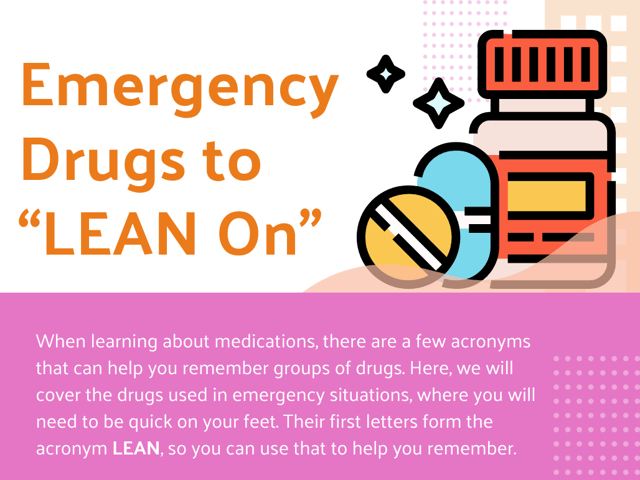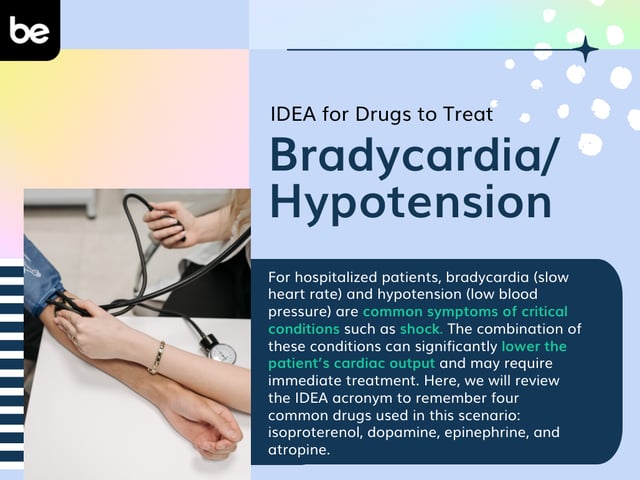
Emergency Drugs to “LEAN On”
When learning about medications, there are a few acronyms that can help you remember groups of drugs. Here, we will cover the drugs used in emergency situations, where you will need to be quick on your feet. Their first letters form the acronym LEAN, so you can use that to help you remember.
For information about more helpful nursing acronyms, look at our NCLEX-RN blog list, as well as our blog list for the NCLEX-PN test.
L: Lidocaine
Lidocaine is usually known as a topical anesthetic, but a lidocaine injection can also be used to treat ventricular arrhythmias that may lead to a heart attack by blocking the cardiac sodium channels. In an emergency, lidocaine is given as an IV bolus over 2–3 minutes at a dosage of 1–1.5mg/kg.
E: Epinephrine
Epinephrine is used in cardiac and/or respiratory emergencies, such as an acute asthma attack, hypersensitivity reaction, or anaphylaxis. Epinephrine increases cardiac contractility, constricts blood vessels, and dilates air passages. In an emergency, epinephrine can be given as an IV push, 1 mg every 2–3 minutes, or can be given as an infusion at dosages that vary depending on the patient’s symptoms and response.
A: Atropine
Atropine can be used to treat sinus bradycardia and reverses the effects of anticholinesterase medications, like Neostigmine. Atropine blocks the sinoatrial and atrioventricular nodes, which increases the cardiac impulse conduction and raises the heart rate. Additionally, it can be used to decrease respiratory secretions. In an emergency, atropine is given as an IV push, 1 mg every 3–5 minutes with a maximum total dosage of 3 mg. If the patient’s condition is unchanged after 3 mg of atropine, a different drug should be used, such as epinephrine.
N: Naloxone (Narcan)
Naloxone, more commonly known as Narcan, is used to treat opioid overdoses. This drug competes for the same receptor sites as opioids, which reverses their effects. Narcan is given IV push, 0.4–2 mg every 2–3 minutes with a maximum dosage of 10 mg, and it can also be administered as a nasal spray.

Keep Reading

National Council Licensure Examination-Registered Nurse Blog
What to Expect in Nursing School Clinicals
The clinical experience is a rite of passage for all nursing students, …

National Council Licensure Examination-Registered Nurse Blog
What is the NCLEX Next Generation (NGN) Exam?
If you’re interested in becoming a registered nurse, you likely know th…

National Council Licensure Examination-Registered Nurse Blog
IDEA for Drugs to Treat Bradycardia/Hypotension
For hospitalized patients, bradycardia (slow heart rate) and hypotensio…